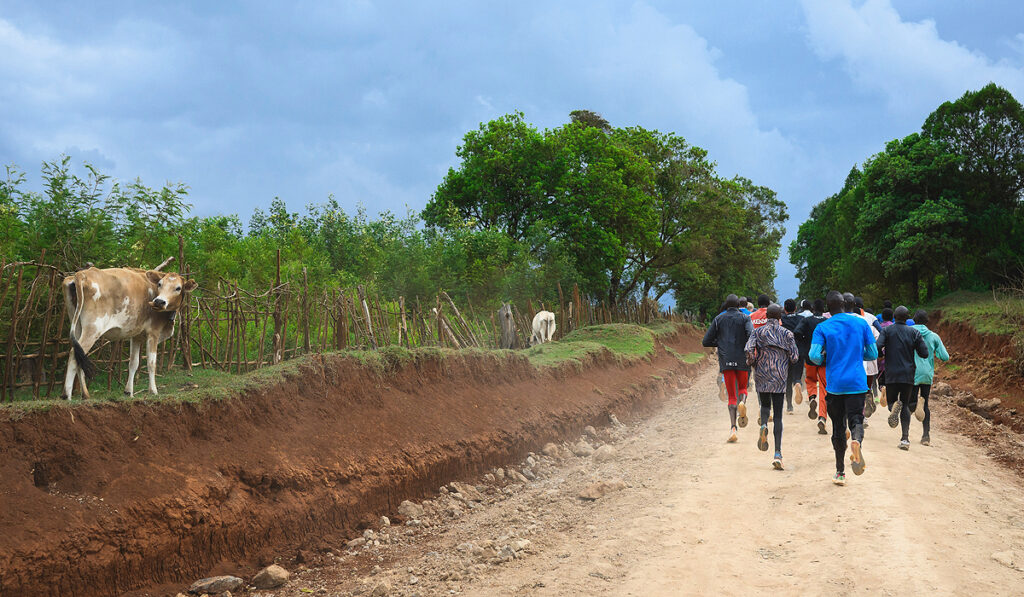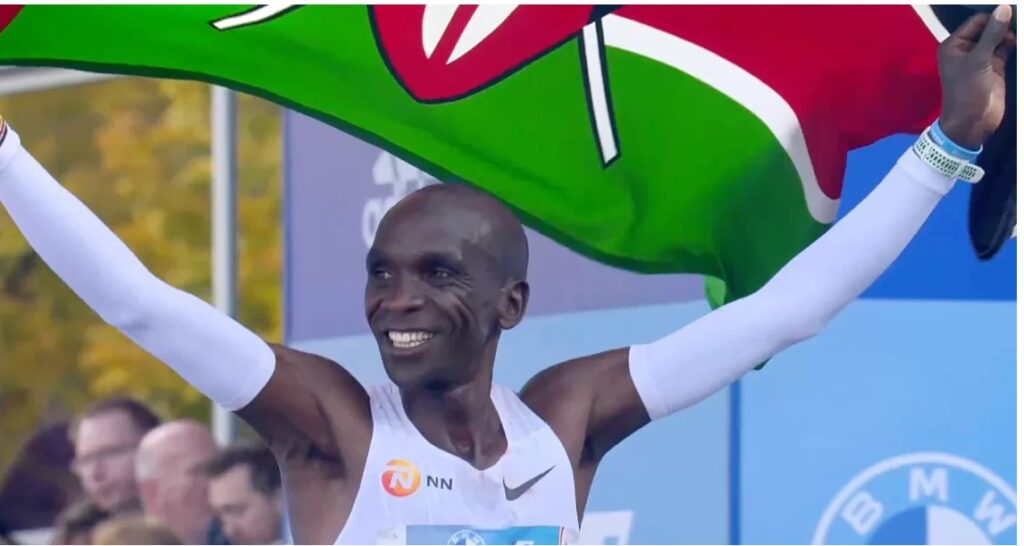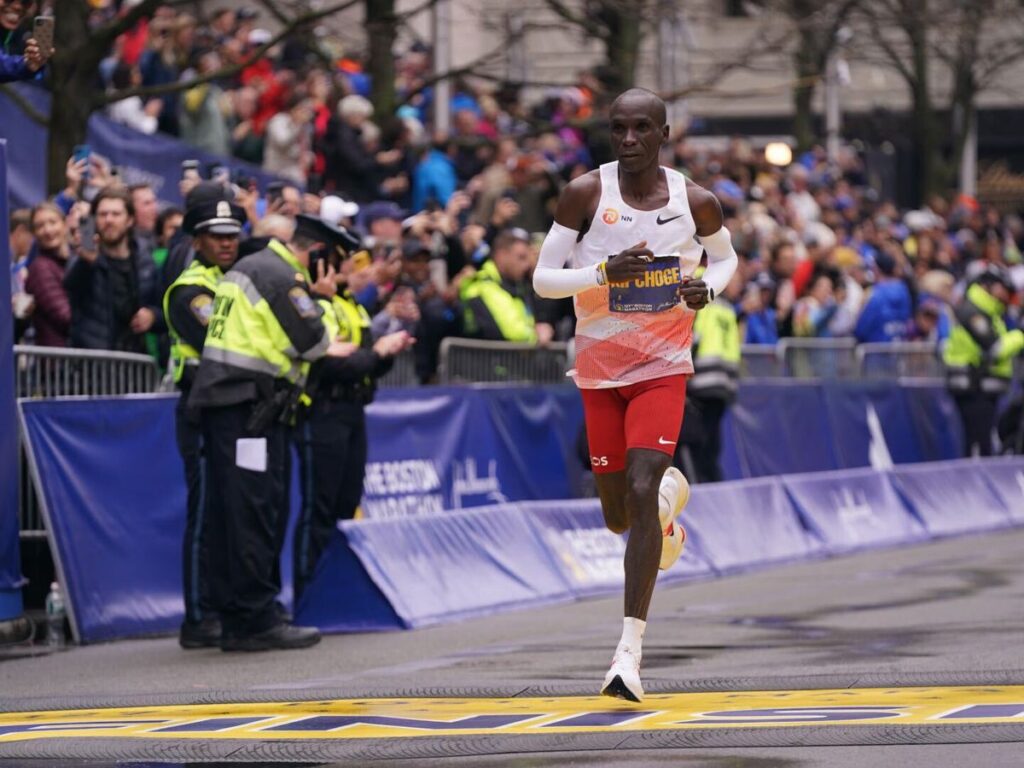By Caroly Kipkoech
Eliud Kipchoge, a Kenyan long-distance runner widely regarded as one of the greatest marathoners in the world, was born on November 5, 1984, in the Kapsisiywa area of Nandi County, Kenya. Growing up in a rural environment, Kipchoge was raised by his mother, a teacher, after his father’s passing when he was young. Even as a child, he displayed a keen interest in long-distance running, often running the two-mile (approximately 3.2km) distance to and from school. Kipchoge attended Kaptel Secondary School in Nandi County for his high school education. Unfortunately, financial constraints prevented him from pursuing higher education.
Training
Kipchoge attributes his tremendous success to his long-term coach, Patrick Sang, a retired Kenyan runner whom he met when he was just 16 years old. Discipline and motivation have been fundamental to Kipchoge’s consistent performance. He trains alongside a group of runners at a high-altitude camp in Kaptagat, Elgeyo Marakwet County. Kipchoge’s disciplined and focused approach to both running and life has earned him the nickname “The Philosopher.”

Kipchoge’s Journey in Athletics
Kipchoge commenced his professional athletics career as a long-distance runner in 2003, competing in the IAAF World Cross Country Championships. In the junior race at the Championships, he narrowly defeated Morocco’s Hicham El Guerrouj, winning his first individual world championship title and setting a world junior record over 5000 m on the track. At the age of eighteen, he became the senior 5000 m world champion at the 2003 World Championships, and in 2004, he won Olympic bronze for Kenya at the Athens Olympics. He also secured a bronze at the 2006 World Indoor Championships. Following his inability to qualify for the Olympics in 2012, Kipchoge shifted his focus to marathons. He achieved great success in his first marathon, held in Hamburg, Germany, finishing first with a time of 2hr 5min 30sec.

He continued to shine in subsequent races, including a second-place finish in the 2013 Berlin Marathon. In 2016, Kipchoge won the London Marathon for the second consecutive year, setting a new course record and recording the second-fastest marathon time in history. He went on to win the Olympic gold medal in the marathon event at the 2016 Rio Summer Olympics. In 2018, Kipchoge shattered the world record at the Berlin Marathon, completing it in a staggering time of 2:01:39. Maintaining his winning streak, he triumphed in the London Marathon once again in 2019, setting a new course record. The Ineos 1:59 Challenge
After winning the London Marathon in 2019, Kipchoge announced the INEOS 1:59 Challenge. The goal was to break the two-hour barrier for the marathon distance. On October 12, 2019, in Vienna’s Prater Park, he accomplished this historic feat with a time of 1:59:40. While his effort did not count as an official world record under IAAF rules due to the setup of the challenge, it marked a significant milestone in marathon running history.

At the 2021 Tokyo Olympics, Kipchoge successfully defended his title from the Rio Olympics. He won the gold medal in the men’s marathon at the Tokyo Games with a time of 2:08:38. This made him only the third person to successfully defend their gold medal in the men’s marathon, following in the footsteps of Abebe Bikila in 1960 and 1964, and Waldemar Cierpinski in 1976 and 1980. Kipchoge was the favorite to win and made his move around the 30 km mark.
He only looked back once afterward and secured victory by an impressive 80-second margin. Abdi Nageeye from the Netherlands won the silver medal, while Bashir Abdi from Belgium took the bronze with a time of 2:10:00. Kipchoge, at the age of 36, became the oldest Olympic marathon winner since Carlos Lopes won in 1984 at the age of 37. The marathon took place 500 miles north of Tokyo in Sapporo, with 106 runners participating.
A documentary titled Kipchoge was released, chronicling the INEOS 1:59 Challenge.
In 2022, Kipchoge achieved further success at the Berlin Marathon. On September 25, he decisively won the race with a time of 2:01:09, beating his own previous world record by 30 seconds. This was his fourth victory in Berlin, equaling the record of Haile Gebrselassie. Mark Korir, a compatriot, finished second, 4 minutes and 49 seconds behind Kipchoge. Tadu Abate from Ethiopia took third place with a time of 2:06:28.

Moving on to the 2023 Boston Marathon, Kipchoge aimed to secure his fifth victory in the six major marathons. However, due to a left leg problem, he suffered the third defeat of his marathon career. He finished sixth with a time of 2:09:23. Evans Chebet emerged as the winner with a time of 2:05:54, successfully defending his title.

At the subsequent 2023 Berlin Marathon, his first race since the Boston defeat, Kipchoge reigned supreme once again. He won the race for an unprecedented fifth time, crossing the finish line at 2:02:42. With this victory, Kipchoge became the first man in history to win the Berlin Marathon five times, having previously triumphed in 2015, 2017, 2018, and 2022.

His exceptional performances led to national recognition and honors. President Uhuru Kenyatta awarded Kipchoge with the Elder of the Order of the Golden Heart of Kenya (EGH), the highest state award bestowed upon a civilian. Looking ahead to the Paris 2024 Olympics, the 39-year-old Kipchoge is guaranteed a place on the competitive Kenyan team.

As the defending champion and the second-fastest man ever, he is diligently preparing for his attempt to secure a third consecutive marathon gold. In an unusual move for an Olympic year, he has opted to participate in an earlier spring marathon.
